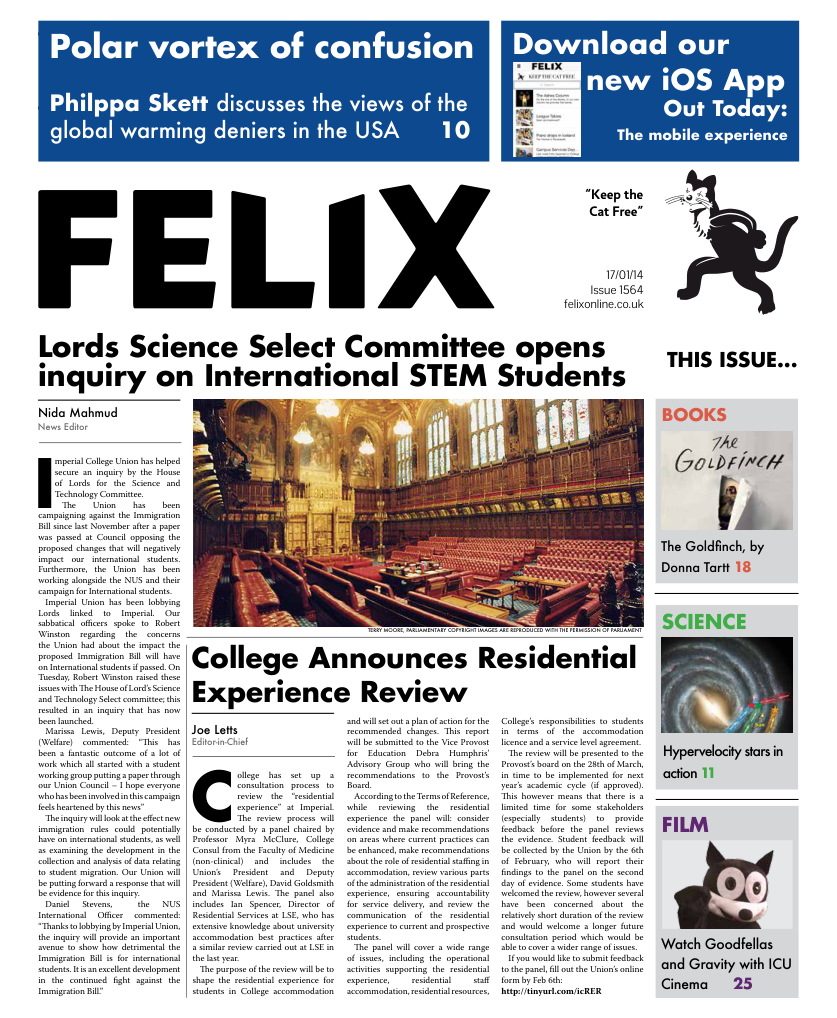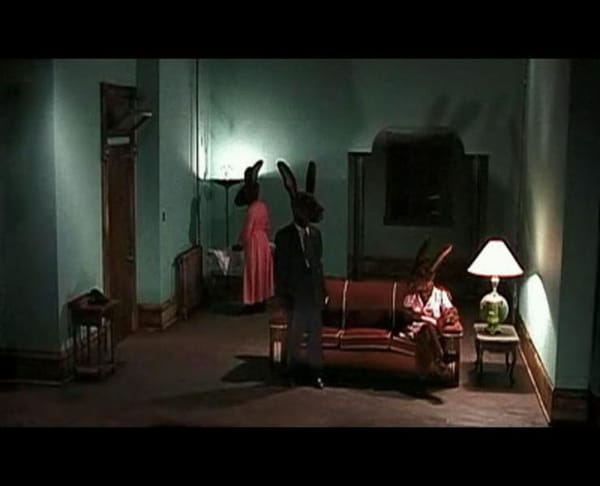Now is the winter of our discontent
Christy Kelly takes on the world
Richard III marks the start of Shakespeare’s longstanding engagement with villainy. From the ‘motiveless malignity’ of Iago to the sublime tragic grandeur of the Macbeths, the roots of all can be spied in this early work; the scandalous graveside seduction, the poisonous force of Queen Margaret. And yet, it is an early work and this shows: the play lacks the psychological subtlety of Othello, the (if you will forgive an oxymoron) crude sophistication of Troilus and Cressida, the scale of A Winter’s Tale, the profundity of the undeservedly lesser known Richard II. Similarly, the pathos during the death of the little Prince is a little too pathetic, the ghosts serve too simplistic a function when compared to their counterparts in Hamlet, Julius Caesar and Macbeth. Finally there is Richard himself, vulgar without Iago’s intelligence, a short (Napoleon Complex susurrates on the periphery of every analysis), grotesque figure of a very picturesque evil.
Yet he has a certain tragic dignity, behind the bathos. The legacy bequeathed on us by the ancients, of sympathy and catharsis, still hold sway in the poetry of the classical époque. We know well that Richard is nothing other than his rapacious surface, yet the very form of tragic theatre grants him a closeness to us. A closeness which, while we stare on, in wonder and in terror, is stolen from the rest of the world.
This, to adapt a phrase from our friends across the Atlantic, is the world this winter: in Iraq, Mohammed Abdul-Hameed, Raad Yassin Al-Baddi, Wassan Al-Azzawi, Jamal Abdul-Nasser Sami and Ahmed Khattab Ohmar are murdered during a raid on local TV station Salaheddin TV. In Bangladesh a nameless lawyer is beaten by four men as she protests in the run-up to the coming election. In Japan, TEPCO employees are ‘asked’ to return compensation money for working in the devastated nuclear wastes of Tohoku. In the US, in New Orleans, a sex worker unknowingly contracts HIV. Earlier, she decided not to carry condoms with her; she heard the police were using them as evidence in prosecutions for prostitution. In the West Bank, 23 Palestinians face the immediate loss of their homes and livelihoods following an illegal court ruling in early December. In South Africa, Funeka Soldaat tries to help another victim of ‘corrective rape’, rape aimed at ‘curing’ lesbians of their homosexuality. In Colombia the family of Albeiro Váldez Martínez continue to face death-threats for attempting to reclaim their land. When Váldez returned to his farm in November 2009, a cattle rancher who had taken over the farm while Váldez was displaced threatened to kill him. When Váldez was found murdered in March 2010, the mayor of the town returned the land to the cattle rancher…
Meanwhile: a complacent Alain Fienkelkraut holds court on the ‘clash of civilisations’ from his desk at the École Polytechnique. TEPCO shareholders see a 136% yearly return, while the Telegraph worries that John Kerry and America might just be a little too late to come to the ‘rescue’. I presume that asking of whom is to beg the question? Bloomberg announces – surprise, surprise – that the rich got richer, and – surprise, surprise – that they will continue to get richer. That ballast of intellectuality and historical sensitivity, Shinzo Abe, takes a spiritual jaunt with war criminals before watching Japan’s latest big budget nationalist farce Eien no Zero, The Eternal Zero…
Perhaps it is not so much that the form of theatre grants our favourite tragic heroes an immediacy lost to others, as that a certain distance in the very ways in which we relate with each other allows the theatre to maintain an equally ‘close distance’, so to speak. It has long been said that, at least since the dawn of the classic age, and in my opinion since long before, language is autotelic, that signification is reflexive, that representation is always representation of representation… Certainly Shakespeare assures us that all the world’s a stage, and if the men and women are really only players then perhaps, just perhaps, these players gain the dimensions of men and women.
Yet when we reach events where all the world really is a stage (you will, I hope, forgive the anachronism), the players lose their tragic dignity. They become not individuals but a faceless mass, without name and without history. And when the winter of our discontent is made summer by the rising sun of York? Keats wrote of ‘the murmurous haunt of flies on summer eves’. Harbingers of the stench of death…





